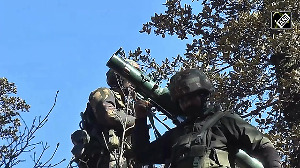The bloodiest unsolved crime in Canadian history will be back in the spotlight in a Vancouver Court on Wednesday as jury selection begins for next week's perjury trial of Reyat, who served 20 years in prison for manslaughter for his part in two bombings.
Reyat, a former Vancouver Island mechanic, will face trial for perjury for allegedly testifying falsely in September 2003 at the trial of mill worker Ajaib Singh Bagri and businessman Ripudaman Singh Malik. 329 passengers were killed after the Air India Kanishka flight 182 from Montreal to Delhi was blown off mid-air near the Irish coast June 23, 1985 by a bomb planted by Khalistani elements. Malik and Bagri were on trial for their alleged role as co-conspirators in the plot.
Reyat is accused of telling the court under oath, with the intent to mislead, that he did not know or recall details of the alleged conspiracy beyond a few matters, Neil MacKenzie, a spokesman for the Crown counsel's office, said on Tuesday.
Crown counsel alleges he lied 27 times during his testimony. On June 22, 1985, homemade bombs were placed on two flights leaving Vancouver in opposite directions. The bombs exploded hours later on opposite sides of the world, killing 331 people.
Malik and Bagri were acquitted after being held in custody for five years. Reyat has been out on bail since the summer of 2008.





